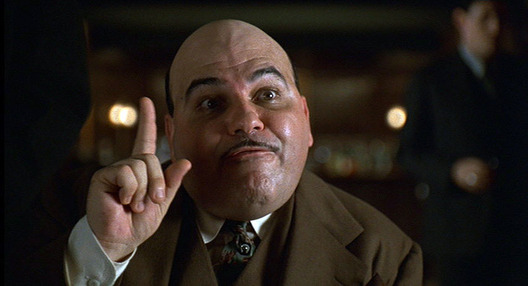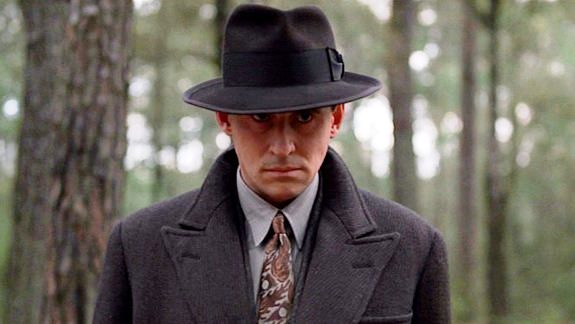
It’s gettin’ so a businessman can’t expect no return from a fixed fight. Now if you can’t trust a fix, what can you trust? For a good return you gotta go bettin’ on chance, and then you’re back with anarchy. Right back inna jungle. On account of the breakdown of ethics. That’s why ethics is important. It’s the grease makes us get along, what separates us from the animals, beasts a burden, beasts a prey. Ethics.
Johnny Capser, “Miller’s Crossing”

It’s significant that Verna takes Tom’s hat off as she kisses him, and later in the film, in a pivotal moment, Leo hands Tom his hat. The hat in the gangster film has always been an important prop, but here, we realize that, to these gangsters, the hat is part of the persona. In this film, characters are constantly putting their hats on and off, and there seems to be an unusually high concern for the welfare of hats (“See you got your hat back.”) Tom’s hat seems to be part of his identity, and you could even say that the hat helps him play a role. The other character whose identity seems to be tied to their hat would be the sinister Dane. Where as Tom’s hat almost acts as a mask or a shield (maybe both?), The Dane’s hat seems to accentuate his diabolical nature. They are the horns of this devil.
Top Shelf Movies – Men Of Principle: Ethics and Hats in Miller’s Crossing